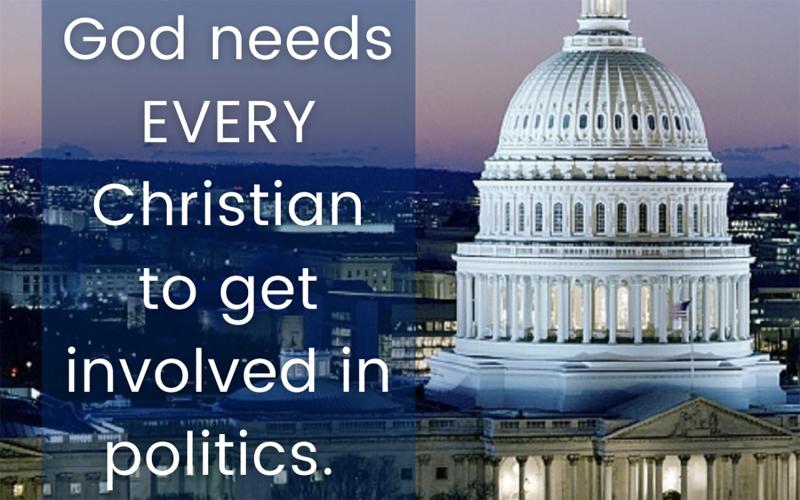
Have you ever been told that faith and politics don’t mix? Or have you felt like when you enter church, your concerns about certain policies need to be left at the door?
These are troubling notions that many Christians experience especially during major elections such as this one. Even some pastors believe faith and politics, or even the broader idea of government, are completely separate. This is dangerous, and not biblical.
To simply say we are “pro-life,” for example, without taking action to ensure that preborn children are protected in the womb, is not enough. Voting is an action that has very real, tangible consequences that shape whether our communities will protect the rights of all and honor God in doing so.
Recent polling data from George Barna and his Cultural Research Center at Arizona Christian University, however, found that as many as 41 million self-identified Christians are unlikely to vote in this election — “more than enough to hand the country’s keys to the eager and radical Left,” a Washington Stand reporter wrote.
According to the research, 49% percent of those surveyed who identified themselves as “people of faith,” said they were unlikely to vote this November. Among those unlikely voters, the most common reason, off ...



